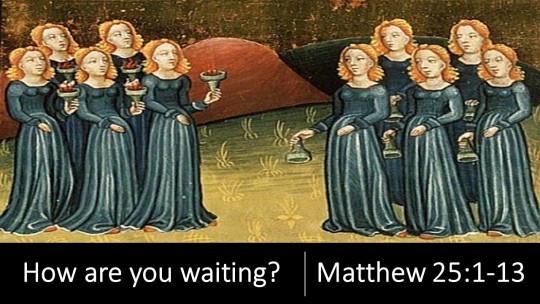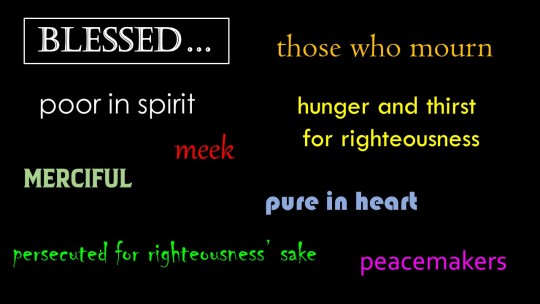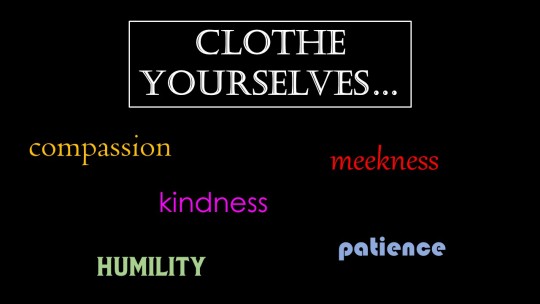#cause you can have pop that's christian friendly without being gospel
Text
I love watching people discover the absolute chaos that is Christian Parody Songs
#nickisnotgreen and dev likes have a video about christian parodies on tiktok#dev limes* i hate autocorrect#and it's so fuckin funny cause nick was in this and dev wasn't despite being in catholic school#I used to make/listen to christian parodies and pop gospel#I wasn't even allowed to listen to imagine dragons as a kid it's fuckin wild#pop gospel goes hard af but it's also so fuckin annoying#cause you can have pop that's christian friendly without being gospel#shoutout kirk franklin that man raised me#do y'all remember I luh god? the mumble rap christian song that very obviously didn't understand what mumble rap is#it's so fuckin funny my family loved that song#n e ways how are y'all doing I hope you're all having a great day#stream pineapple upside down by queef jerky instead of kirk franklin#ex christian#religious trauma
23 notes
·
View notes
Text
How are you waiting? Matthew 25:1-13 March 31, 2019
Call to Worship
Thank the Lord with all your heart, in the gathered assembly of God’s people.
Mighty are the deeds of the Lord; great are God’s works, studied by all who have pleasure in them.
Holy and awesome is God’s name! To worship the Lord is the highest wisdom; those who do so know all that is good.
God’s praises will last forever!
Prayer of Invocation
You who have created us and sustain us: we are thankful for these moments when we can slow down and listen for your voice. Create a spirit within us that draws us toward you and toward our brothers and sisters. Clear our minds, open our hearts and touch us with your presence and your power. We offer this prayer in the name of Jesus Christ our Lord, who taught us to pray,
Our Father in heaven, holy is your name. Your kingdom come, your will be done, on earth as it is in heaven. Give us today our daily bread. Forgive us our sins, as we forgive those who sin against us. Lead us not into temptation, but deliver us from evil. For yours is the kingdom, and the power, and the glory, forever. Amen.

I feel like it would be good to take a moment and talk about where we are.
In terms of the Narrative Lectionary, we’re nearing the end of our winter/early spring emphasis on the Gospel of Matthew. We’ve been following Matthew since just prior to Christmas in preaching, Bible Study, and in Sunday School.
In terms of the Gospel of Matthew itself, these parables fall on Tuesday of Holy Week. Our church calendar hasn’t gotten us there yet, but we want to think about how these so-called “Parables of Judgment” fit with the promise of Easter.
Let me also encourage you now to begin making plans for Holy Week. Obviously, Easter is the most significant holiday in the Christian year, but the lessons learned and reenacted on both Maundy Thursday and Good Friday—including these Parables of Judgment—are essential to the full understanding of the Gospel in our lives.
Especially to those of you with children, I know it’s hard. You have jobs, and homework, and bedtimes to deal with. I simply want to encourage you to make plans now and come and get as much as you can. Let the kids see the shape of our faith and how our worship throughout Holy Week is an opportunity to create disciples of all ages.
Matthew 24-25 are one long response to a question the disciples asked at the beginning of Matthew 24: “Tell us, when will this be, and what will be the sign of your coming and of the end of the age?” It’s a question I’m starting to hear people ask more and more: “Surely, the end is getting close.” The answer always is “We don’t know.” We prefer signs and timelines and such, but the Bible makes much better sense when we see its instruction on how to live now while we’re waiting for the things God will do in the future. It’s a bit like students in school who spend more time averaging their grades and asking for extra credit than buckling down and working hard on each individual assignment! If you keep up with your studies, you don’t have to worry about the pop quiz!
The question for us is to consider is this:

And so this week we have another parable about a wedding, and it must have been a big one because it has ten bridesmaids are invited to be in the wedding party. The ten bridesmaids get ready and go to the bride’s home where they will all wait while the groom’s family finishes negotiations for the wedding. The groom will come to the home, get the bride, and they’ll all go together to the groom’s home, where the couple will be married and begin their family.
But there’s a problem—the groom is late in coming. Five of the bridesmaids are prepared for this delay; the others are not. The crucial point in the parable is this: when the bridegroom arrived, the unprepared bridesmaids were nowhere to be found and the wedding party proceeds without them. They were invited to be in the wedding party; they had even participated for a while. But because they weren’t prepared for the crucial moment, they missed out on everything, and the party went on without them. It’s a tough story.
As is sometimes the case, we have to avoid wiggling out of the tough questions the Bible asks. It wouldn’t at all surprise me if someone thinks the question the foolish bridesmaids asked is the right one: the bridesmaids that had extra oil should have shared.
But this is not the parable of the lost sheep or the prodigal son, where the lesson is that even the most undeserving person who has done terrible things and rightly suffered the consequences of their choices gets to come home.
And it’s not Jesus’ teaching about overcoming evil by turning the other cheek or going the extra mile or giving our cloak if someone takes our cloak.
And it’s not that thing that we Brethren might be best—helping out someone in a time of need by sharing food or clothes or rebuilding a home or even sharing lamp oil.
We can’t reduce every difficult story to our favorite theological points. We have to let this text stand on its own. The point of this parable is to ask, “are we ready for the bridegroom to come?” The thing that makes the wise bridesmaids wise is not that they were at the party—all of the bridesmaids are equal in that regard. What makes them wise is that they could imagine that there might be a delay in the wedding. They didn’t get so focused on being at the party that they failed to imagine that something else might be expected of them.
The foolish bridesmaids suffer a terrible consequence for not thinking through what might be required of them in their situation. It’s a tough parable for people who place such a high value on relationships—we really struggle when people don’t want the relationship. The dreadful sentence, “Truly I tell you, I do not know you” is simply the truth of their condition. Jesus does not say, “I never called you.” Jesus does not say, “I never loved you.” Jesus does not say, “I never drew you to myself.” He only says, “I never knew you—because you never bothered to know me” (Parables of Judgment, Capon, 165). They were at the party—and still missed out.
How do we avoid missing out? We need to ask ourselves some hard questions about what it means to follow Jesus on March 31, 2019. And I’ll tell you, the conversations we have together about our world are a sign of hope. I know that for many of you, this world feels less like home than it once did. And even though that feels uncomfortable, it’s a good thing! It’s an indication that our spiritual formation is having an impact.
I’ve recently come to know of pastor Brian Zahnd of Word of Life Church in St. Joseph, MO through his writing and blogging. He’s been wrestling with issues like these for quite some time now, and in his recent book, Postcards from Babylon, he reflects on what it means for Jesus-followers like us to be committed to life in a culture that really prefers death. He writes,
“Those who follow Jesus are a prophetic challenge to abortion for convenience and a prophetic challenge to carpet-bombing for a cause. If it threatens the well-being of children, followers of Jesus oppose it. Nothing less is truly pro-life. This is why a consistent pro-life Christian ethic opposes the death-friendly practices of abortion, capital punishment, torture, war, predatory capitalism, environmental exploitation, unchecked proliferation of guns, neglecting the poor, refusing the refugee, and keeping healthcare unaffordable for millions” (Postcards from Babylon, 79).
How do we respond to the world that Pastor Zahnd describes with an extra supply of oil for our lamps, ready to meet the bridegroom? Jesus has already told us what that extra oil looks like in the Beatitudes.

Paul talks about it too, using slightly different words in his letter to the Colossians:

Having the faith and the imagination to respond to real people and real circumstances with these qualities shows we’ve kept our lamps trimmed and burning.
And yet, in practice, these characteristics can seem pretty foolish.
How many people have you met who really aren’t interested in faith at all? Why give of your time and treasure and talent to be part of a church? Isn’t what we do here foolish by some reckoning?
How many reject the Brethren view of peacemaking and our opposition to war as foolish?
How many times have any of us preferred to seek revenge rather than attempt reconciliation, because forgiveness seemed foolish in light of pain we had experienced?
Jesus’ uncomfortable parable teaches us that when we encounter situations like these, we do have options. We can reject the gospel and the life of Christ, we can reject peacemaking, we can reject forgiveness and reconciliation—all these things and more, and they might make more sense. But these are signs of those who didn’t think through how much oil they’d need to continue being the light of the world we’re called to be. And that distinction matters. Paul described our life in Christ to the Corinthians in other terms, saying “if anyone is in Christ, there is a new creation: everything old has passed away; see, everything has become new! All this is from God, who reconciled us to himself through Christ” (2 Corinthians 5:17-18a). Since there is nothing of our old self left, why not go ahead and act like it? What we can’t do is claim this newness in our minds but then go around attempting to solve our problems out of our oldness.
We often wish—and it is a great wish—that the church will be an oasis in the time of storm. For many of you, this congregation has been just that. It’s important, because we all know the storms will come;
Our health will fail and we will need the support of the church to see us through the difficult times.
Others wrestle with unbelieving spouses and other loved ones, and the challenges that presents.
Jobs will be lost, and hard times will come.
But there will be other hard times, too. Situations will arise where we need to ask ourselves, “What does my faith require of me here?” It’s in these times that our lives will show if we are carrying extra oil. People who carry extra oil are people who truly have hope in Christ, the ability to imagine following Jesus even when every indication says Jesus’ ways make no sense. We welcome the lost, forgive the sinner, see the humanity in the stranger and alien, value the unborn, honor the commitments made to our spouse, devote ourselves to prayer, all because the extra oil is burning in our lamps.
0 notes